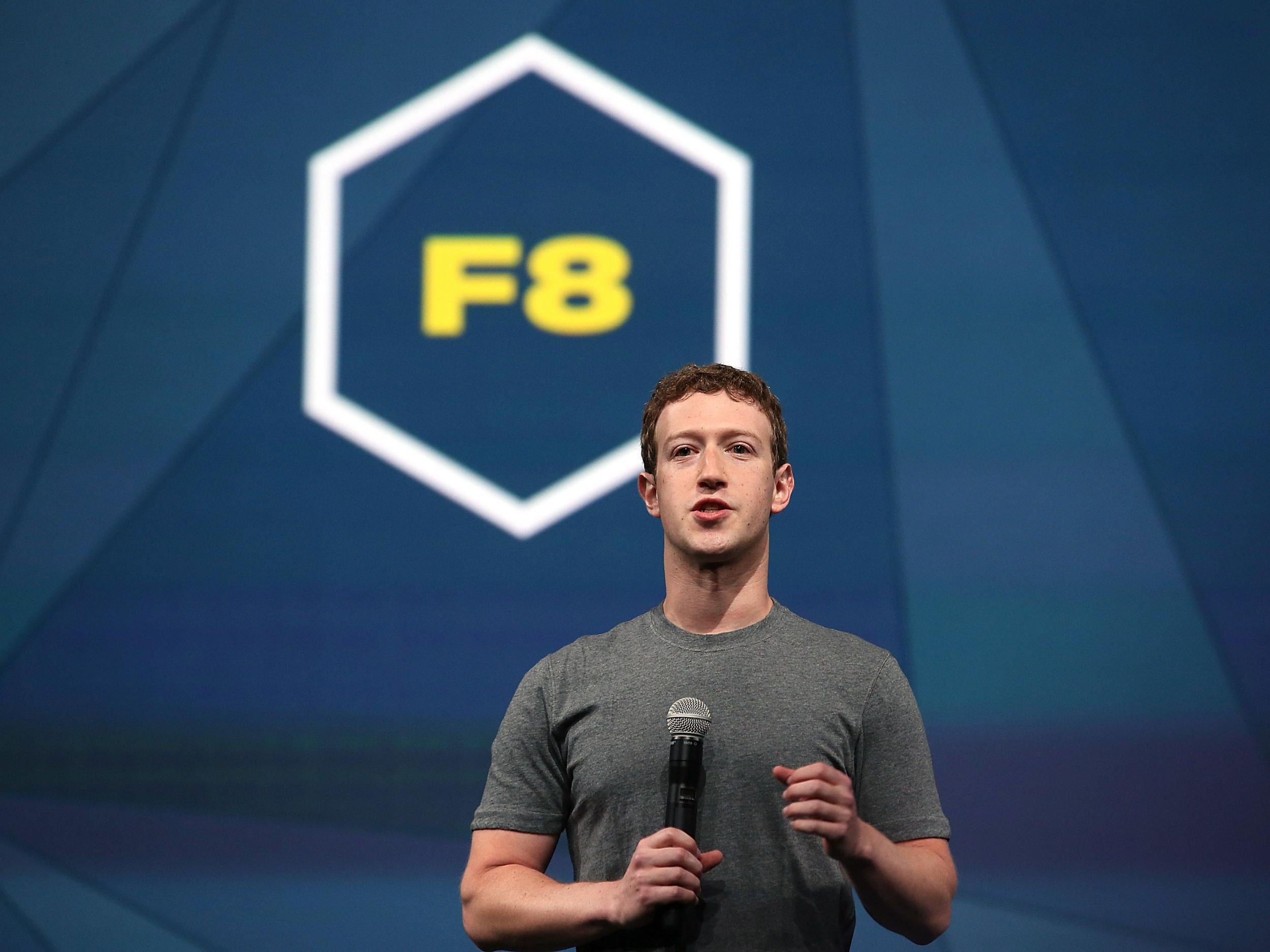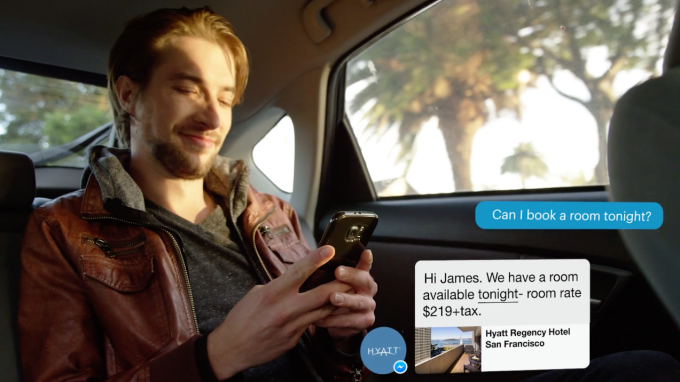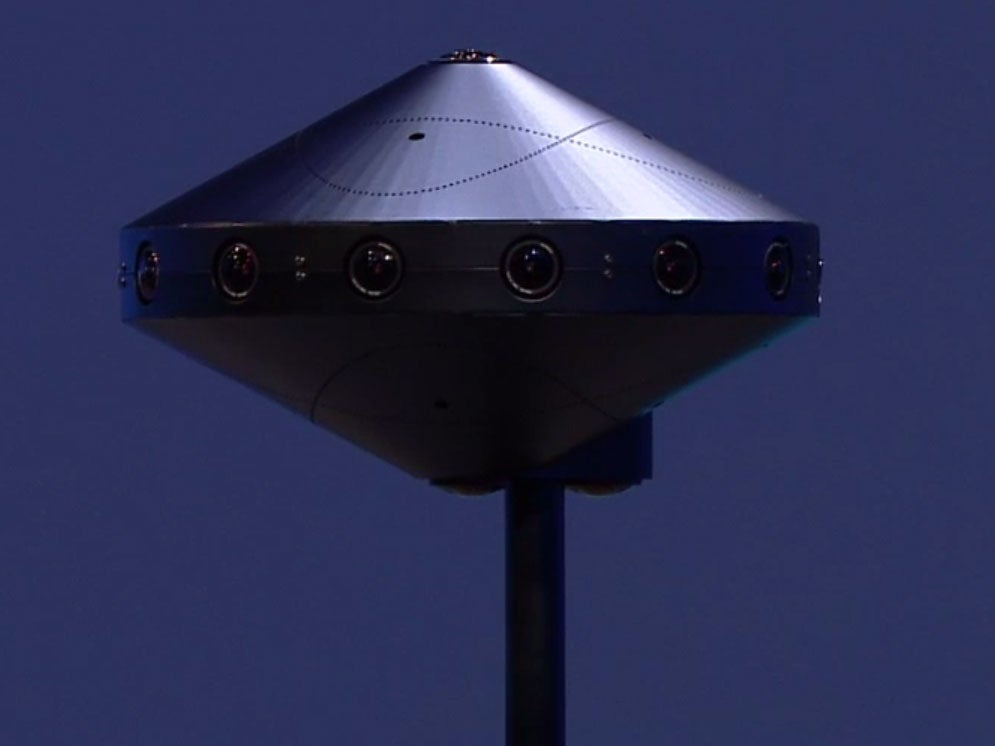Facebook F8 conference: What we learned during the opening keynote speeches
A number of major announcements were made during the opening speeches of this year's F8 conference

Facebook's F8 developer conference has only been going for a few hours, and already there's been some huge announcements.
Gone are the days when F8 was just for announcing newsfeed redesigns - in the opening keynote speeches, we've heard about a brand new Messenger chatbot platform, a solar-powered WiFi plane, and all kinds of live video innovations.
Here's some of the main things we learned at the F8 opening event.
Mark Zuckerberg doesn't like Donald Trump very much
Zuckerberg straight away took a thinly-veiled swipe at the Republican presidential candidate while talking about Facebook's plan to 'connect the world'.
Speaking to the assembled crowd of developers, Zuckerberg said: "As I look around the world, I'm starting to see people and nations turning inwards, against the idea of a connected world and global community."
"I hear fearful voices calling for building walls and distancing people they label as 'others'. I hear them calling for blocking free expression, for slowing immigration, for reducing trade, and in some cases even for cutting access to the internet. It takes courage to choose hope over fear."
"Instead of building walls, we can help people build bridges."
No doubt Trump is preparing his rebuttal right now.
Facebook has launched the Bot Platform
We've written about the Bot Platform in more detail elsewhere, but essentially it could completely change how you use the internet.

The platform has just been released in beta form, and allows you to order goods, book tickets and complain to companies by talking to an artificially intelligent robot, rather than calling a helpline or visiting a full website.
Tech people are very excited about it, and some have speculated it could have a similar impact on the mobile web world as Apple's App Store.
It's building a solar-powered plane and launching satellites
This has been announced before, but it came out of left field during the conference - as part of their ongoing plan to bring internet to developing countries and remote areas, Facebook is building a giant, unmanned, solar-powered plane, which will beam internet down to people who need it the most. There are plans to have a "fleet" of them in the skies one day.

Zuckerberg also said the company's first satellite will be launched this month, and will bring internet services to sub-Saharan Africa.
It's going big on live video
Facebook's has taken its first steps with live video already, but it has much grander ambitions - soon, filmmakers will be able to stream live video to Facebook from any device, not just a smartphone.
That includes traditional film cameras and even flying drones, which Facebook demonstrated during the event.
Also coming soon are new controls for live video, which will allow a controller to switch cameras and zoom in on certain areas, not unlike a TV director does today - this will come in handy for media companies already taking advantage of the new tool.
It's also designed a 360-degree camera
One of the final big announcements was the Facebook Surround 360 - a flying saucer-shaped camera that can capture footage in 360 degrees. Facebook says its design is better than other cameras already on the market, and claims its software makes processing the video a much quicker and easier task.

Facebook is making all the designs for the camera completely open-source - meaning anyone will be able to build one or use the software. The company hopes the filmmakers who end up using the camera (which will cost at least £21,000 to build) will start posting their content to people's Facebook feeds, so users can take advantage of the forthcoming 360-degree video support for the app.
Join our commenting forum
Join thought-provoking conversations, follow other Independent readers and see their replies
Comments
Bookmark popover
Removed from bookmarks